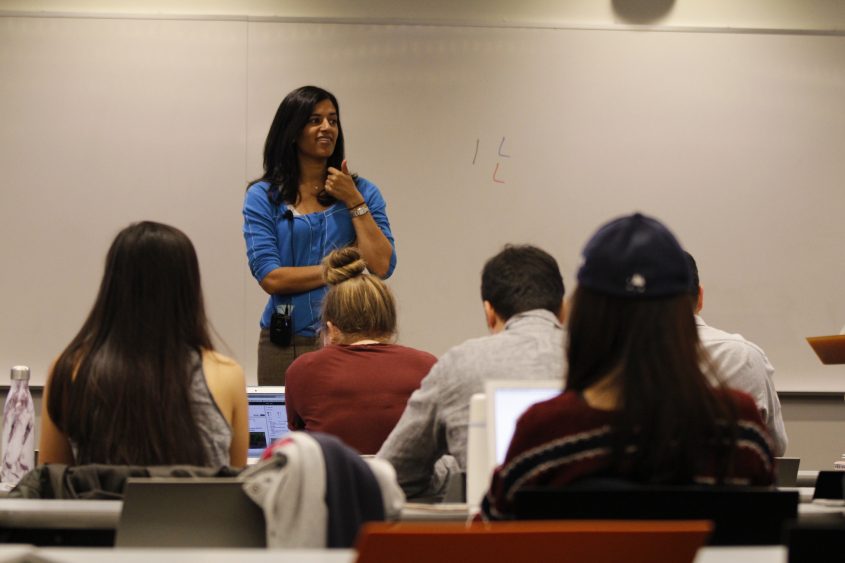
Giving Microeconomics a Human Face Public Policy professor Manisha Shah’s research bridges a worldwide gap between health, economics and education
By Stan Paul
At age 16, Manisha Shah went to the Andes Mountains of Ecuador — her first chance to dig into “real development work.” The task after a year of fundraising and training? Building latrines in rural communities. Soon after arrival, however, she realized that everyone there “already knew how” to build latrines.
What they actually needed was financing and supplies. “That is what we helped facilitate — paying for and transporting supplies to this faraway town in the middle of the mountains.”
The experience in Ecuador was transformative for Shah, now an associate professor of public policy at UCLA Luskin. It enhanced a developing global view nurtured as a child during family visits to see her grandparents in India, where she saw “poverty all around her.”
Her youthful travels helped put Shah on the path to her career in academia and research around the world — from Mexico to India, Tanzania to Indonesia — and eventually to the Luskin School of Public Affairs.
“Never in a million years would I have predicted that I would be a tenured professor at UCLA,” Shah said. “I feel so lucky to be doing what I love at one of the best universities in the world.”
Getting There
Today, Shah focuses her teaching and research on the intersection of applied microeconomics, health and development. She is supported by organizations that include the Bill and Melinda Gates Foundation, the William and Flora Hewlett Foundation, and the World Bank.
An example of her work is a recent study, “Investing in Human Capital Production: Evidence from India,” that fills a substantial gap in development literature related to whether early-life investments encourage more educational investments later on, whether low-skill wages in rural India increase school dropouts, and whether rural schools produce gains in consumption later in life. The results have widespread implications for family and individual well-being, economic growth and national competitiveness for the country of over a billion people.
Her research affiliations and teaching might suggest otherwise, but Shah’s path was not exactly a straight one. “I don’t think I had a direct route. In fact, it was very indirect,” said Shah, who sought work abroad after earning undergraduate degrees in economics and development
at Berkeley.
“I quickly learned how difficult it is to find a job that will actually pay you to do international work,” she said.
She wound up in a one-year program at the London School of Economics where her master’s thesis in development economics examined HIV/AIDS issues in India and how NGOs were working to fill gaps in countries that were slow to react to potential epidemics.
“This was 1996-97. Getting HIV in a developing country was a death sentence, and so many countries were doing little to publicly acknowledge they even had an HIV problem,” Shah said.
Next was Mexico, and work at the International Maize and Wheat Improvement Center. Shah is fluent in Spanish, and at the time thought she was “done with school and would never come back,” having achieved her goal of working in international development. “I loved the job.”
But there was a catch.
“I knew I wanted to keep doing this type of work, but I also started to realize that the people calling the shots, raising the money, directing things, all had Ph.D.s,” Shah said. So she spent a year doing the math — literally, taking the calculus, statistics and real analysis coursework she needed for a doctoral program at UC Berkeley. “There was almost no literature in economics on HIV/AIDS,” Shah said of her ongoing interest in the intersection of HIV and economics. “I learned that most interventions in development related to HIV/AIDS often targeted sex workers, as they tend to have higher rates of sexually transmitted infections and HIV/AIDS than the general adult population in most developing countries.”
Shah’s eyes were opened when she learned how many women in developing countries are employed in the sex sector. She saw the implications for public health and noted a lack of serious empirical study, which “began an important area of research for me.”
She recently co-edited the “Oxford Handbook of the Economics of Prostitution,” in which more than 40 researchers from around the world compiled and interpreted valuable economic data and research that may help lawmakers and government officials set policy guidelines concerning prostitution worldwide.
“A number of factors, including the proliferation of sexually transmitted infections and HIV/AIDS, especially in developing nations, have created the need to look at prostitution through an economic lens,” she said.
And yes, like the teenager who traveled to Ecuador decades ago, Shah is still interested in sanitation, a core issue at the intersection of human health and economics
in developing countries.
Research and Public Policy
Shah refers to herself as an applied microeconomist interested in development economics, health and education. “Most of my research fits into those bins,” Shah said.
She has written papers on the long-term impacts of positive rainfall shocks as well as drought in India on human capital outcomes of young children and adolescents, and risk-taking behaviors in the wake of natural disasters, as well as the effects of cash transfer programs on criminal behavior in Indonesia. Behind each are human stories of how policies affect large populations.
Shah’s research on HIV and the sex industry has wide-ranging implications for the health and well-being of not only adults but also vulnerable young people caught up in prostitution around the world.
“These days most of my work is either related to children or adolescents,” Shah said. “I often joke that my switch to research about children perfectly coincides with my becoming a mother. I remember researching questions about child development when I was pregnant and being surprised about how little we know about many important issues related to child cognitive/health and development.”
Shah is the principal investigator of a randomized controlled trial in Tanzania attempting to understand how to improve sexual and reproductive health outcomes for teenage girls. “I am really excited about this work,” said Shah, who was also recently awarded a National Science Foundation grant to better understand education outcomes for children in rural India.
After teaching stints at the University of Melbourne, Princeton University and UC Irvine, she joined the Luskin faculty in 2013. Today, she teaches microeconomics, development economics and serves as a faculty adviser for the Applied Policy Project (APP), a challenging yearlong requirement for master of public policy students at Luskin.
“Ironically, I learned in grad school that I actually enjoy teaching, and I was sort of good at it,” she said of her classroom duties. Her research topics are heavy, which could lead to frustration about things that should be happening but don’t. “But spend some time with our students and it will put you in a good mood,” she said.
“Our students make me optimistic, and that optimism can be infectious. I love how our students care so deeply about issues that matter to them.”
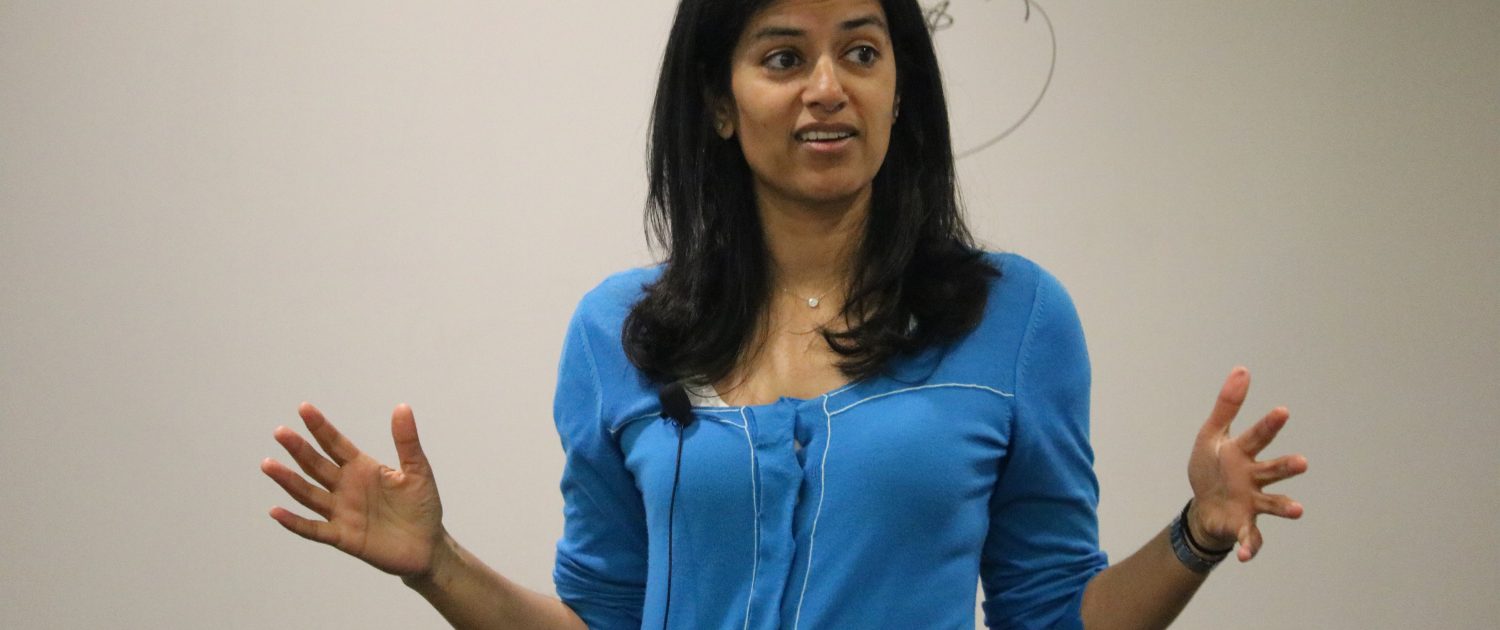


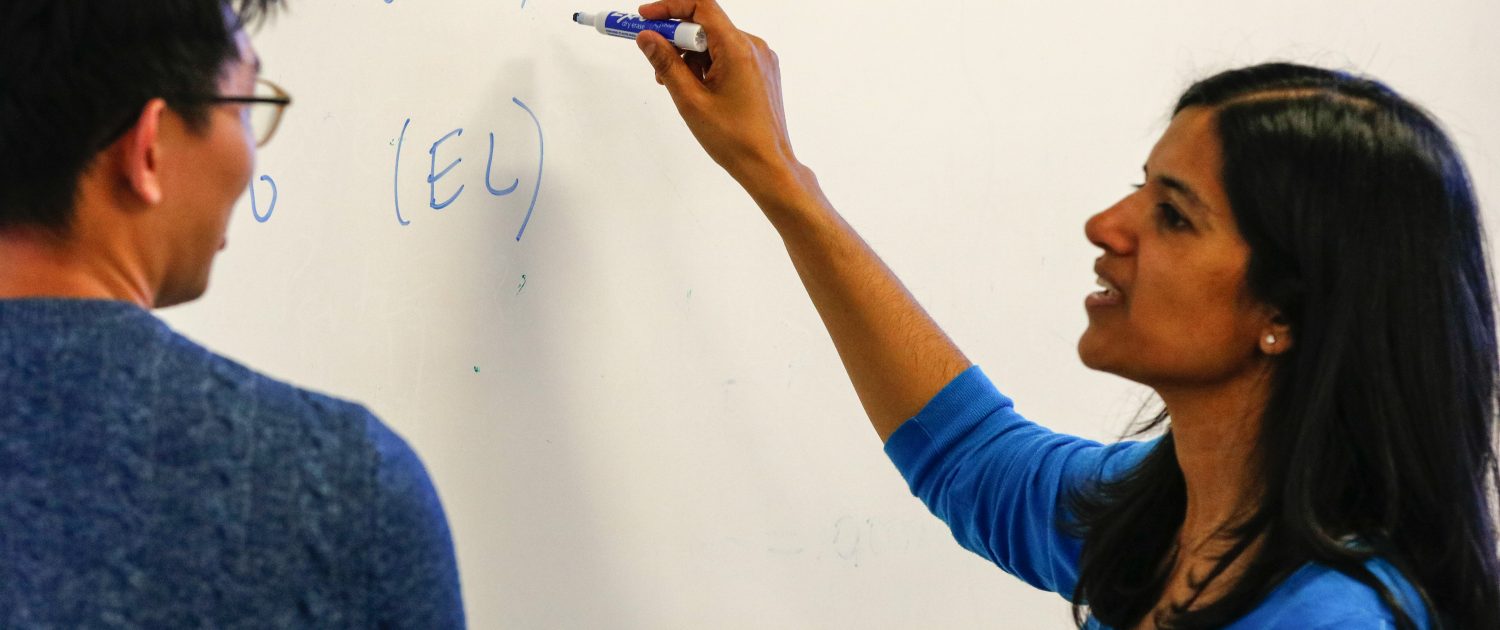

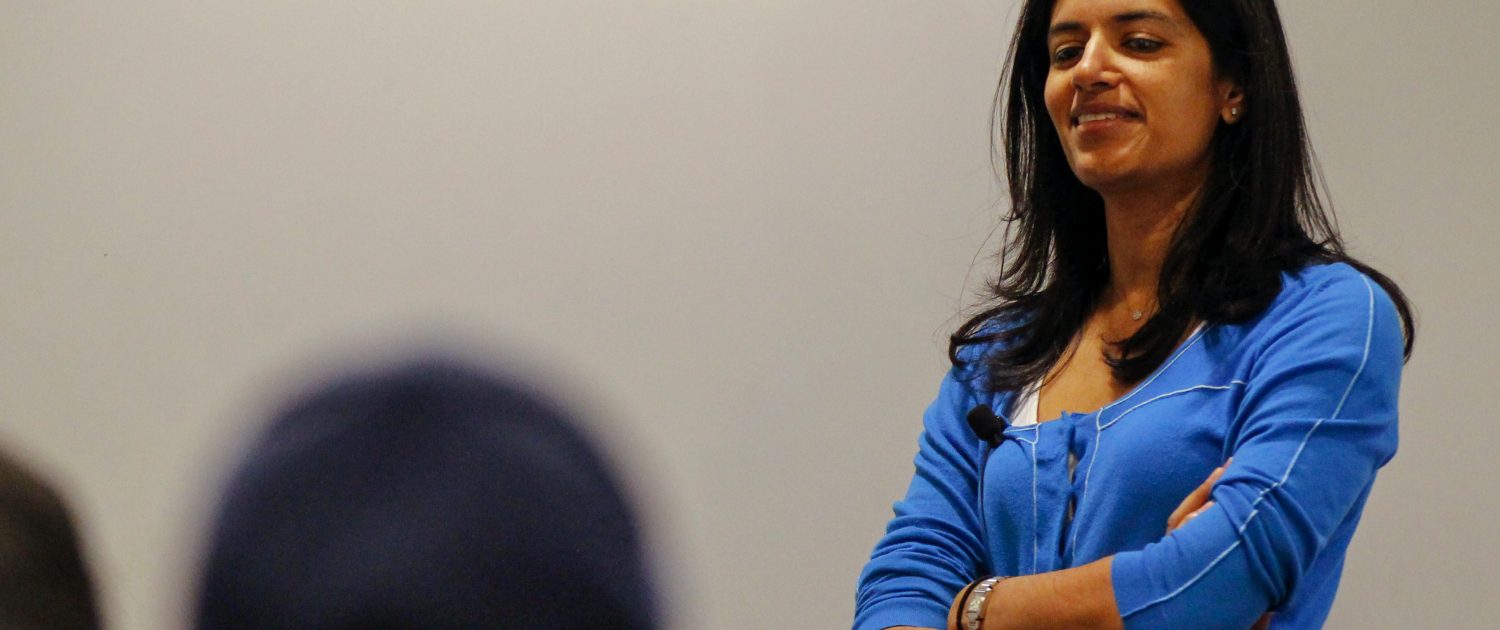





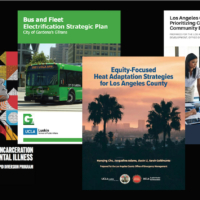



Leave a Reply
Want to join the discussion?Feel free to contribute!